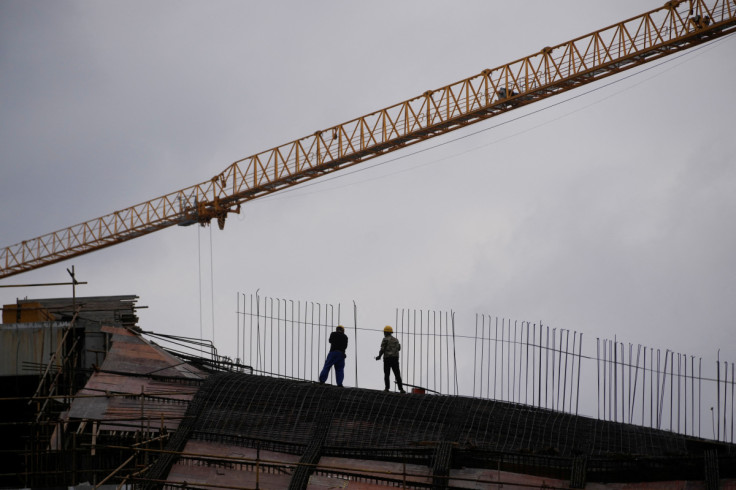China Plan To Restore Sector Liquidity Boosts Property Stocks, Bonds

Chinese property stocks and bonds soared on Monday as the market cheered an extensive package outlined by Chinese regulators to shore up financing in the embattled real estate sector, with the sub-index surging close to a two-month high in morning trading.
The package, which sources say lays out multiple liquidity-boosting measures, was hailed by analysts as a "turning point" with one even describing it as the equivalent of "soaking rain after a long drought".
The plan comes as the cash-strapped sector has struggled with defaults and stalled projects, hitting market confidence and weighing on the world's second-largest economy. Policymakers' previous efforts to help financing has done little to bolster the property market.
"We see property being much less of a drag to GDP growth in 2023," said Tao Wang, chief China economist at UBS Investment Bank Research.
The Hang Seng Mainland Properties Index jumped 16.2%, with the share prices of many Chinese property developers posting double-digit gains. Country Garden rallied as much as 52% to hit an over three-month high, and last stood up 41% by noon.
Logan Group jumped 51%, while KWG Group firmed 40%. Agile Group and R&F Properties both rose more than 35%.
A dollar bond of defaulted Yango Group due 2023 rose 1.787 cents on the dollar to 2.712, according to data from Duration Finance. Powerlong Real Estate's April 2025 bond was traded at 9.275 cents, 3.055 cents higher than Friday. Their bonds also surged onshore.
Two sources told Reuters on Sunday a notice to financial institutions from the People's Bank of China (PBOC) and the China Banking and Insurance Regulatory Commission (CBIRC) outlined 16 steps to support the industry, including loan repayment extensions.
PBOC and CBIRC have not responded to Reuters' requests for comment.
Citi said the package signals a major shift in regulators' policy stance on developers, from "imposing restrictions" to "providing support", and "rescuing projects, but not developers" to "rescuing both developers and projects".
The notice "introduced by far the most comprehensive set of support measures for the ailing property market," it said.
Jefferies estimated the package, together with other recent policies, would inject around 1.3 trillion yuan ($183.83 billion) credit into the property sector, largely covering private developers' public bonds and trust products due to mature by end-2023.
Last week, the National Association of Financial Market Institutional Investors said it would widen a programme to support about 250 billion yuan worth of debt sales by private firms, including property developers.
Some investors remained cautious about the impact of the latest policy, however, as regulators have already made many attempts to revive the property sector and the macro environment remains weak amid the country's COVID restrictions.
"At the end of the day, the rebound of home sales is still needed for an ultimate industry comeback," said James Wong, portfolio manager at GaoTeng Global Asset Management Ltd.
Li Gen, CEO of Beijing BG Capital Management Ltd, which specialises in credit investment, said developers that have not defaulted would benefit the most, but the help would be "less meaningful" for offshore property bonds as it remains unclear how offshore financing could be enhanced.
Citi said the package should help bank shares as well as it eases investors' concern on developers' credit risk.
Banks with higher exposure to developers including Ping An Bank, Industrial Bank <601166.SS> and China Merchants Bank, would particularly benefit from the package, Citi added.
($1 = 7.0718 Chinese yuan renminbi)
© Copyright Thomson Reuters 2024. All rights reserved.





















